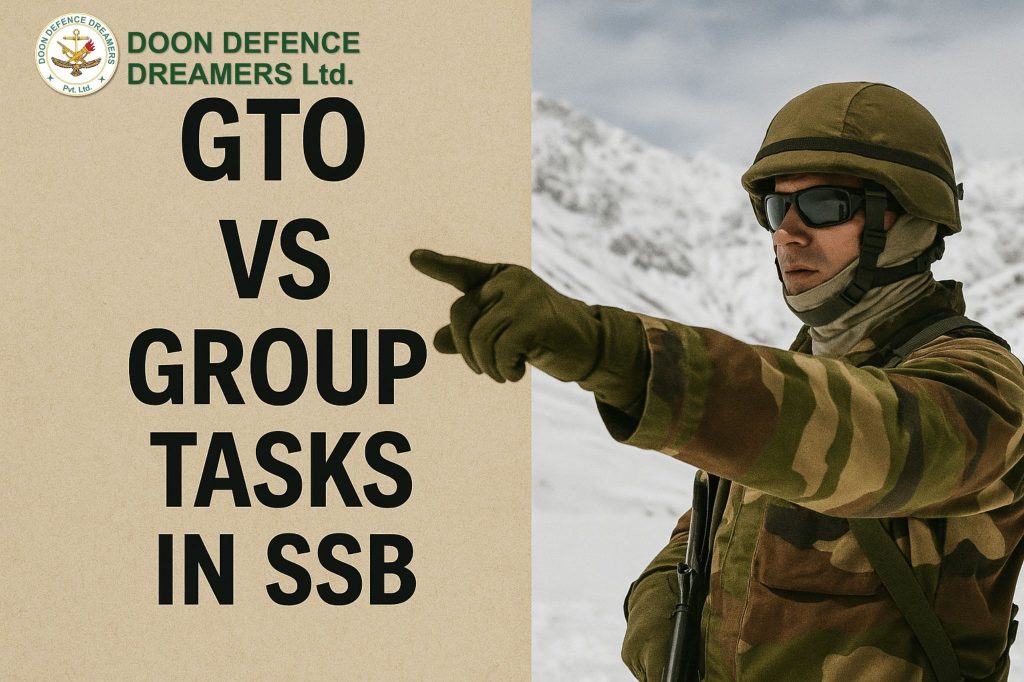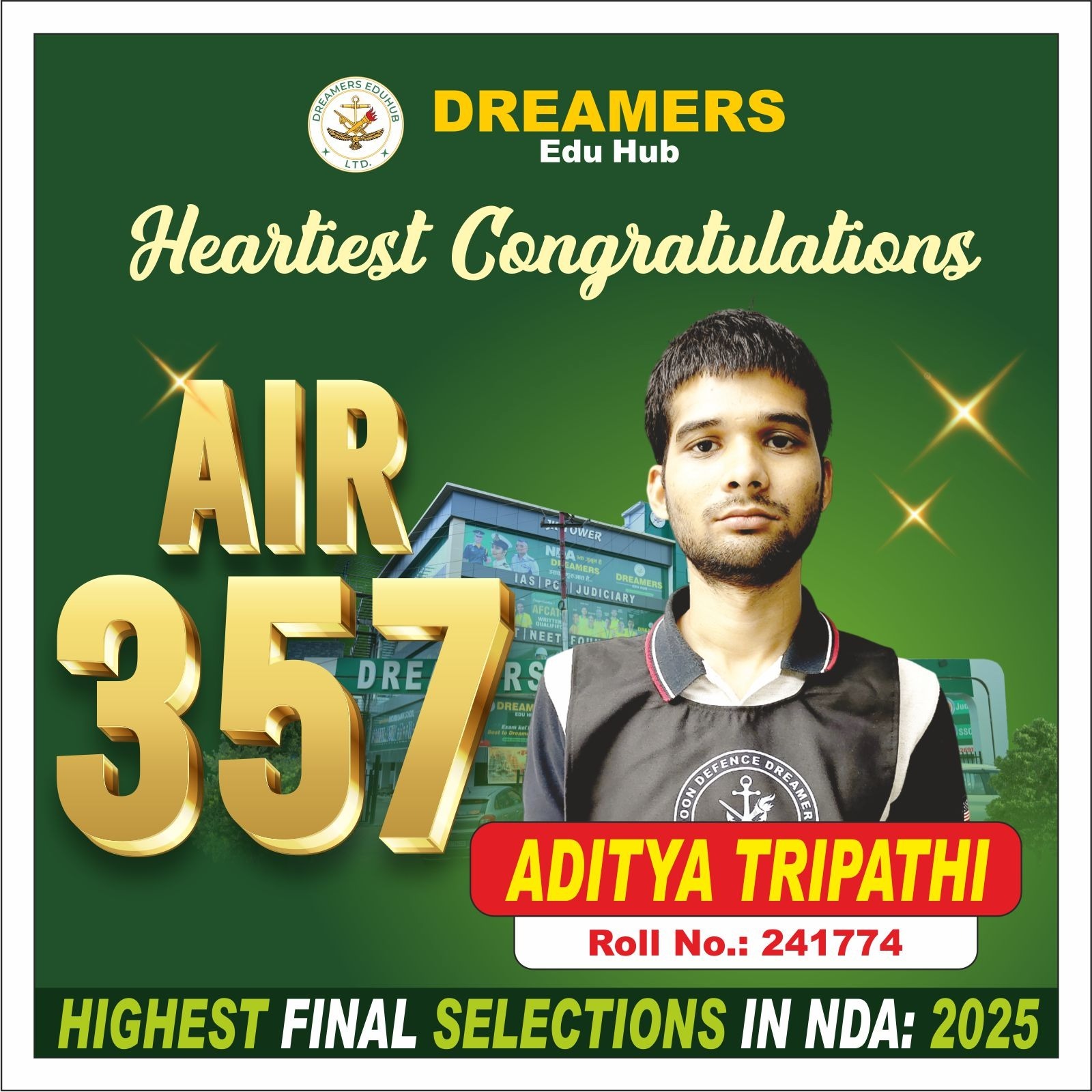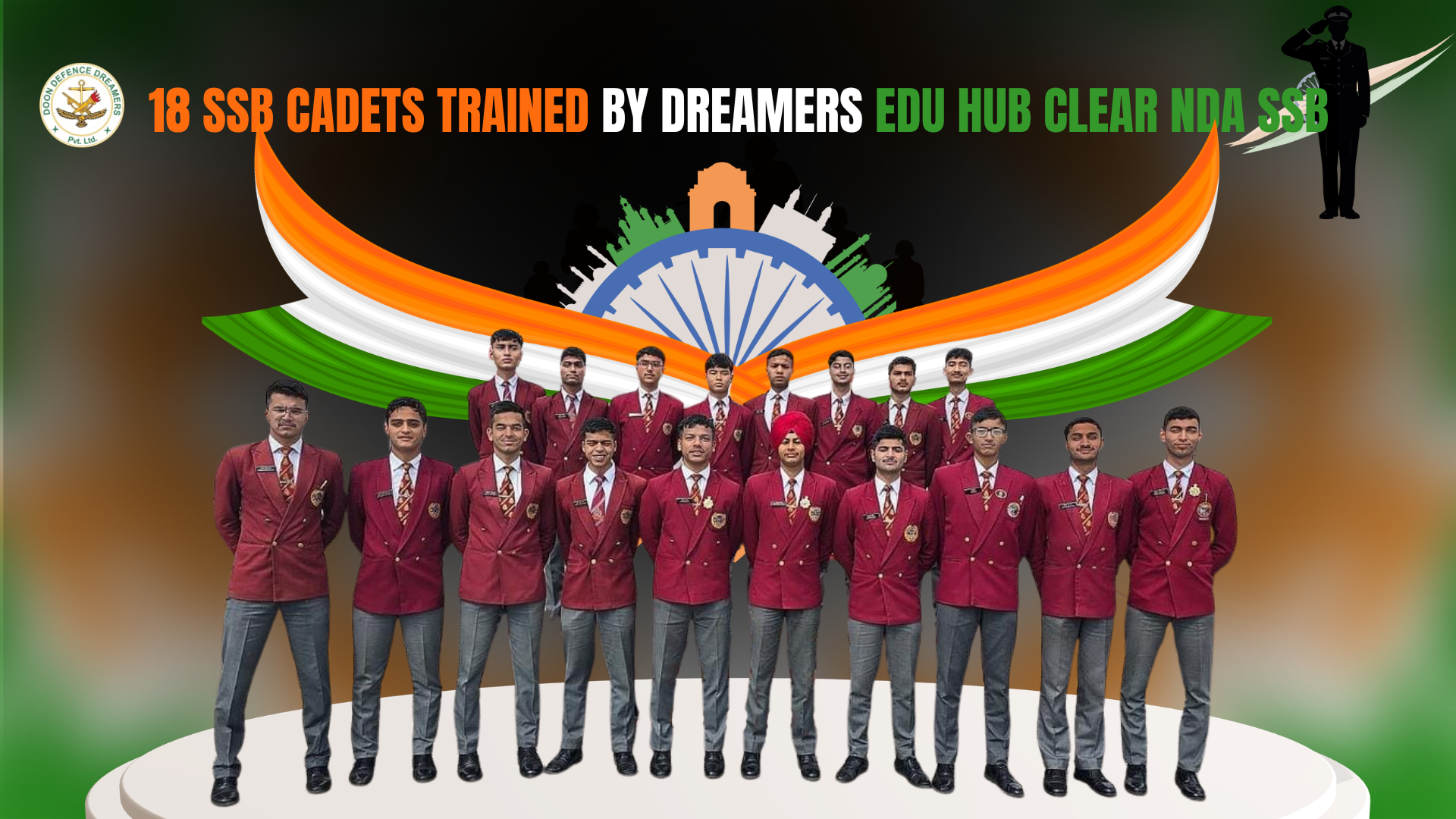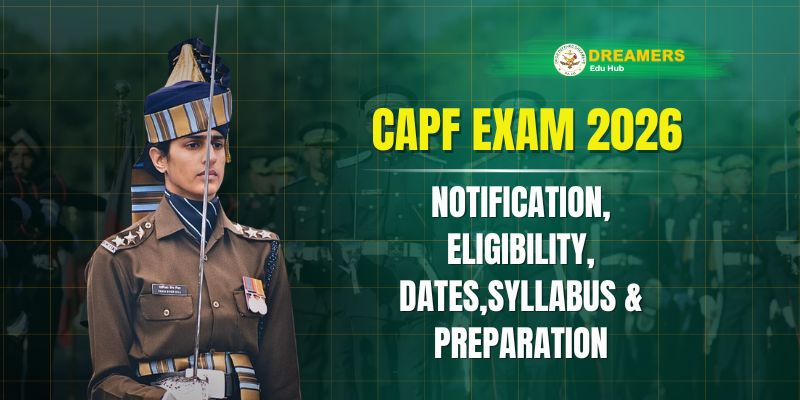GTO vs Group Tasks in SSB: What Every Candidate Must Know
Many SSB candidates struggle to differentiate between GTO and Group tasks during their 5-day interview process. This confusion is quite common among aspirants who dream of joining the Indian Armed Forces.
The GTO tasks consist of nine unique exercises that test your leadership qualities. A Group Testing Officer conducts these sessions to review your teamwork abilities, communication skills, and how well you solve problems under pressure. These tasks were designed to analyze candidates’ behavioral patterns in group environments. The mix-up between GTO tasks and general group tasks can substantially affect how candidates prepare.
Doon Defence Dreamers stands out as the best SSB coaching center in Dehradun. Our track record shows a soaring win with over 35 selections in recent batches. Years of experience have taught us that candidates must grasp these subtle assessment differences to succeed in their SSB interview.
This piece breaks down the main differences between GTO and Group tasks. You’ll find practical examples and useful strategies that will help you excel in both aspects of the SSB selection process.
GTO vs Group Tasks: Key Differences Explained
The GTO VS Group task difference plays a crucial role in SSB selection success. Many candidates mix up these terms, which affects their preparation. Let me clear up this key difference for you.
Definition and purpose of GTO tasks
The Group Testing Officer runs GTO tasks during two days of the SSB interview (usually Day 3 and Day 4). These nine well-laid-out exercises help assess your leadership, teamwork, and problem-solving skills.
The nine tasks split into three series:
- Basic Series: Group Discussion, Group Planning Exercise, Progressive Group Task, and Group Obstacle Race
- Confirmatory Series: Half Group Task, Lecturette, Individual Obstacles, and Command Task
- Final Series: Final Group Task
GTO tasks emerged from the need to see how candidates behave under pressure in group settings. Here at Doon Defence Dreamers, the best SSB coaching in Dehradun, we show candidates that these tasks reveal their Officer-Like Qualities (OLQs) beyond physical abilities.
What are Group Tasks in SSB?
Group Tasks work differently than the detailed GTO assessment series. They include all activities where candidates collaborate. Small groups of 6-10 candidates take part in various group activities throughout the SSB process. These exercises show how well candidates work in team settings.
Group Tasks show the overall assessment method rather than specific exercises. Your true personality shines through social interaction and shared problem-solving in these scenarios.
How they are assessed differently
Each concept follows its own assessment path. The officer watches both individual and group performance during GTO tasks. To cite an instance, see Command Task where leadership and decision-making take priority, while Progressive Group Task focuses on teamwork and resource use.
The GTO creates a full picture of your personality by watching your participation in different activities. This detailed evaluation looks at physical endurance, mental agility, leadership qualities, and team spirit.
Doon Defence Dreamers has helped achieve 35+ recent selections by mastering these subtle differences. Our training develops both personal qualities and group dynamics that assessors look for throughout the SSB process.
Breakdown of GTO Tasks with Examples
Let’s take a closer look at the nine specific GTO tasks in SSB and what they actually mean. Our team at Doon Defence Dreamers, the best SSB coaching in Dehradun with 35+ selections in recent batches, provides detailed training for each of these challenges.
Group Discussion and Planning Exercise
Group Discussion (GD) tests your communication skills, reasoning abilities, and teamwork. Students typically tackle two topics—one abstract and one based on current affairs. Each discussion runs for about 20 minutes, giving you a chance to show your knowledge and leadership potential.
The Group Planning Exercise (GPE) tests your problem-solving and logical reasoning skills. You’ll need to analyze a scenario with multiple problems, write your solution in 10 minutes, and then cooperate with your group for 15-20 minutes to create a unified plan. A nominated candidate presents the final solution.
Physical tasks: PGT, GOR, IO
Progressive Group Task (PGT) challenges you to navigate obstacles using planks, ropes, and wooden poles. The obstacles get tougher as you progress, testing both your physical abilities and group coordination.
Group Obstacle Race (GOR), also known as Snake Race, puts your team through six obstacles while carrying a heavy “snake-like” object. This competitive challenge measures your team spirit and physical endurance.
Individual Obstacles (IO) consists of 10 physical challenges including jumping, crawling, and balancing. You’ll have just 3 minutes to complete as many obstacles as possible, showing your courage, determination, and time management skills.
Leadership tasks: Command Task, HGT
Command Task puts you in charge of a small team facing an obstacle. You’ll pick two team members and must show clear instructions and decisive leadership.
Half Group Task (HGT) works like PGT but with smaller groups, which allows better individual assessment. This format gives you more chances to demonstrate your leadership qualities.
Communication tasks: Lecturette, FGT
Lecturette asks you to pick one topic from four options, prepare for 3 minutes, and deliver a 3-minute speech. This shows your confidence, speaking skills, and depth of knowledge.
Final Group Task (FGT) gives you one last chance to shine, with the entire group working on a final obstacle. This challenge brings together everything you’ve learned and shows your group’s development in dynamics.
How to Excel in GTO and Group Tasks
Success in GTO VS Group task assessments relies on becoming skilled at specific abilities that extend beyond task knowledge. Doon Defence Dreamers, recognized as the BEST SSB COACHING IN DEHRADUN with 35+ selections in recent batches, develops these vital qualities in candidates.
Listening and observation skills
gto tasks in SSB distinguish exceptional candidates through active listening. Your listening skills will improve when you:
- Keep direct eye contact with speakers while maintaining a relaxed expression
- Show involvement through subtle nods and appropriate facial reactions
- Create mental notes without interrupting others
- Confirm understanding by paraphrasing instructions
Strong leaders express their ideas with clarity and precision. group task scenarios need you to communicate in ways everyone understands, which builds a cooperative environment.
Balancing leadership and cooperation
Armed forces leadership builds on respect and team collaboration, not just giving orders. This balance comes from:
Your active participation and full cooperation matter. The right moments call for initiative, while other times require supporting teammates without domination. Quiet teammates need inclusion through questions about their thoughts, which ensures full participation.
Time management and physical fitness
Strict time limits govern most GTO tasks in SSB. Swift logical decisions and quick problem understanding lead to efficient execution without delays. Breaking down problems into smaller parts helps achieve goals faster.
Physical fitness shows your readiness for military challenges. Regular exercise should target endurance, strength, agility, and flexibility. Doon Defence Dreamers provides ground training facilities and mock drills that build physical stamina and mental resilience together.
Why Doon Defence Dreamers is the Best SSB Coaching in Dehradun
Want to see proven results in GTO VS Group task coaching? Doon Defence Dreamers leads the pack as the best SSB preparation institute in northern India.
35+ selections in recent batches
Our team achieved a milestone with 35 recommendations in NDA 155 SSB. Six female cadets cleared India’s toughest NDA SSB interview process on the same day. These numbers show how our systematic approach helps candidates achieve their dreams.
Real GTO ground and mock drills
India’s largest gto tasks in SSB training ground sits right at our facility. Former Group Testing Officers designed this space specifically. Our candidates train in realistic conditions through daily drills. They rotate through mock GTO tasks to gain hands-on experience.
Expert mentors and personalized feedback
Our academy’s strength comes from retired Armed Forces officers who served as Group Testing Officers in SSB boards. Their experience of assessing thousands of candidates during service helps them provide targeted feedback on strengths and improvement areas.
Focus on both physical and personality development
The academy builds all 15 officer-like qualities needed to get selected. Our Gurukul-style approach shapes character. Candidates learn to become better individuals who can distinguish right from wrong. This balanced growth explains why many successful officers credit us for their selection.
Conclusion
The difference between GTO tasks and Group tasks can affect your SSB interview performance by a lot. As I wrote in this piece, GTO tasks are nine structured exercises that a Group Testing Officer conducts. Group tasks, on the other hand, are part of a broader team-based assessment method. This knowledge will help you prepare with better focus and direction.
Your success in these assessments depends on developing leadership qualities, teamwork abilities, communication skills, and physical fitness equally. You just need to show Officer-Like Qualities through consistent performance in all challenges. Live listening and time management skills are crucial too when you tackle these complex exercises.
Doon Defence Dreamers takes pride in our all-encompassing approach to SSB preparation. We’ve achieved 35+ selections in recent batches, and 6 female cadets cleared India’s challenging NDA SSB interview. Our success comes from India’s largest GTO training ground, expert guidance from retired Armed Forces officers, and tailored feedback systems.
Starting your SSB experience with a clear understanding of “GTO VS Group task” differences is just the beginning. The real change happens through dedicated practice on realistic grounds, one-on-one coaching, and complete personality development. These are the foundations of our training at Doon Defence Dreamers.
The principles stay the same whether you face the Command Task, Group Discussion, or Final Group Task. Listen well, speak clearly, lead when needed, always cooperate, and manage your time well. Stay genuine while showing qualities the Armed Forces value. With proper preparation and guidance from experienced mentors who know these details inside out, SSB success will be yours.
Key Takeaways
Understanding the distinction between GTO tasks and Group tasks is crucial for SSB interview success, as it shapes your entire preparation strategy and performance approach.
• GTO tasks are 9 specific structured exercises conducted over two days by the Group Testing Officer, while Group tasks refer to the broader team-based assessment methodology throughout SSB.
• Success requires balanced development of leadership qualities, teamwork abilities, communication skills, and physical fitness—not just physical prowess alone.
• Active listening and clear communication are essential skills that set exceptional candidates apart during all group-based assessments.
• Time management under pressure is critical since most GTO tasks have strict time limits requiring swift decision-making and efficient execution.
• Authentic leadership means earning respect through cooperation and including all team members, rather than simply giving orders or dominating discussions.
The key to excelling in both GTO and Group tasks lies in understanding that assessors evaluate your Officer-Like Qualities through consistent performance across diverse challenges. Focus on developing genuine leadership abilities while maintaining strong teamwork skills, as this combination forms the foundation of successful military officers.
FAQs
Q1. What are the main GTO tasks in the SSB interview? The SSB interview includes nine GTO tasks: Group Discussion, Group Planning Exercise, Progressive Group Task, Group Obstacle Race, Half Group Task, Lecturette, Individual Obstacles, Command Task, and Final Group Task. These exercises assess leadership, teamwork, communication, and problem-solving skills.
Q2. How important are GTO tasks in the SSB selection process? GTO tasks are crucial in the SSB selection process. Conducted on Days 3 and 4, they evaluate candidates on essential qualities like teamwork, leadership, communication, initiative, problem-solving abilities, and both mental and physical endurance.
Q3. What’s the difference between GTO tasks and Group tasks in SSB? GTO tasks are nine specific exercises conducted by the Group Testing Officer over two days, while Group tasks refer to the broader methodology of team-based assessment throughout the SSB process. GTO tasks are more structured and focused on specific qualities.
Q4. How can I excel in both GTO and Group tasks? To excel in both, focus on developing leadership qualities, teamwork abilities, communication skills, and physical fitness. Practice active listening, clear communication, time management under pressure, and authentic leadership that includes all team members.
Q5. What physical fitness level is required for GTO tasks? While specific fitness requirements aren’t explicitly stated, candidates should develop overall endurance, strength, agility, and flexibility. Tasks like the Group Obstacle Race and Individual Obstacles demand good physical condition, so regular exercise focusing on these aspects is crucial.


































